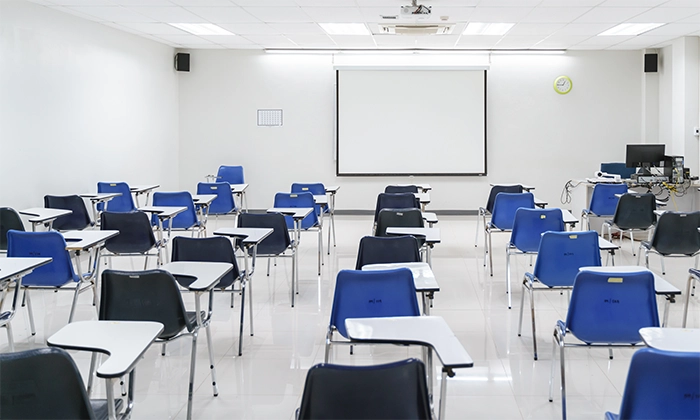Another homework debate - 2019 style

There were several excellent articles and opinions recently on the value of homework. More than anything else, they serve to highlight the diverse views and level of disagreement among noted academics. Little wonder parents and teachers are often confused. What hope is there if the academics cannot agree?
In a recent radio segment on the topic, one parent expressed his relief and joy when his children's primary school eliminated homework after a parent survey. Their justification was in line with most of the research which indicates its limited academic value in the primary years.
The most comprehensive research on homework comes from a meta-analysis by Duke University psychology professor Harris Cooper, who found evidence of a positive correlation between homework and student achievement in the US for 7-12th graders, but less so for younger students (Cooper, H. et al. 2006). Cooper's research noted that homework impacts positively on study habits, attitudes toward school, self-discipline, inquisitiveness and independent problem-solving skills, but can also lead to physical and emotional fatigue, fuel negativity, anxiety, family tension, and limit leisure activities.
Similar research by Australian academics Richard Walker and Mike Horsley's revealed that homework has little or no educational value for young primary school children (Horsley, M. & Walker, R. 2013). The research was particularly critical of the emphasis on quantity rather than quality. The study concluded that essentially homework was not very beneficial for primary students, and had minimal benefits for junior secondary students. It did however concede certain cognitive benefits for senior secondary students. Moreover, parental dominance and negative interference were seen to be particularly detrimental to student achievement.
As a result of these dynamics, homework in many households leads to unintended tension between child and parent, and between the home and school. No doubt many parents danced precariously between guide, facilitator, collaborator and eventual enforce, resulting only in the continued alienation of each of the parties involved.
A recent paper from the US advocated that homework is most effective in schools not for academic benefit, but also as a tool for inclusion and family engagement – getting families involved and excited about learning, rather than as a source of frustration and exclusion. Re-framing how schools approach homework has the potential to make it both more meaningful and more effective, the authors argued (Gohl, E and Thorson, K. 2018).
I tend to side with the opinion that it is all about quality rather than quantity when it comes to homework. I also stop short of advocating that a 'no homework' policy should become a new norm of 21st-century schooling.
Professor Andrew Martin (Scientia professor and professor of educational psychology in the School of Education at the University of NSW), acknowledges the angst that homework causes for students and their families, but made an excellent case for its retention because younger students are not particularly good at doing homework.
As such, he argued that they need to practice to improve, much the same as one would for soccer. Time spent doing important homework tasks will yield dividends he said, developing knowledge, skills, and self-direction.
Problems seem to arise when assigned homework tasks are overwhelming, overcomplicated, unclear, or not targeted to skill development or knowledge acquisition, having a significant drain on the child and his or her parents. (Cue collective revulsion of agonising weeks researching Antarctica; Democracy; Volcanoes. Aagh!)
No two children learn the same, and that is where differentiated tasks are essential, as is spatial learning – tasks set apart periodically over time to revise skills and knowledge. Most young people have a 'use it or lose it' memory process, to use a sporting analogy. Unless you apply the skill, it simply won't be embedded in general practice. So essentially, as Professor Martin advocates, there is still academic value in manageable targeted activities saved for home. Professor Martin also advocates that another essential reason to retain and maintain a homework routine, particularly among younger children, is to stave off the saturation of mobile technology and screen time as an alternative to homework, but that’s a whole other blog piece.
References
Cooper, H. et al. (2006) "Does Homework Improve Academic Achievement? A Synthesis of Research, 1987–2003".
Gohl, E., and Thorson, K., (2018), "Homework or No Homework? Maybe We're Asking the Wrong Question".
Horsley, M., and Walker, R. (2013). Reforming homework: practices, learning and policy.
References
Subscribe to our newsletter
Get the latest teaching and learning insights delivered to your inbox.
You can unsubscribe at any time, no hard feelings.
Subscribe to our newsletter
Get the latest teaching and learning insights delivered to your inbox.
You can unsubscribe at any time, no hard feelings.
What's Atomi?
Easy to understand, super engaging, and matching what you’re learning in class. Available for 100s of subjects across your high school years.
With heaps of questions and smart AI feedback that shows you what you’ve nailed and what to work on—so you won’t just feel ready, you’ll be ready.
Improve your study game, get AI-driven tips tailored to you, keep tabs on your progress and unlock insights so you can always hit your goals.
What's Atomi?
Captivating and impactful video-first content, fit for all types of learners and grounded in the absolute must-have info of the high school curriculum.
Active recall quizzes, topic tests and exam practice enable students to get immediate feedback and build skills, while allowing teachers to differentiate instruction.
Create engaging learning experiences with easy-to-use tasks, get actionable insights to differentiate instruction and experience intelligent personalisation for your students.
What's Atomi?
Short, curriculum-specific videos and interactive content that’s easy to understand and backed by the latest research.
Active recall quizzes and practice sessions enable students to build their skills, put knowledge into practice and get feedback.
Our AI understands each student's progress and makes intelligent recommendations based on their strengths and weaknesses.



.webp)
